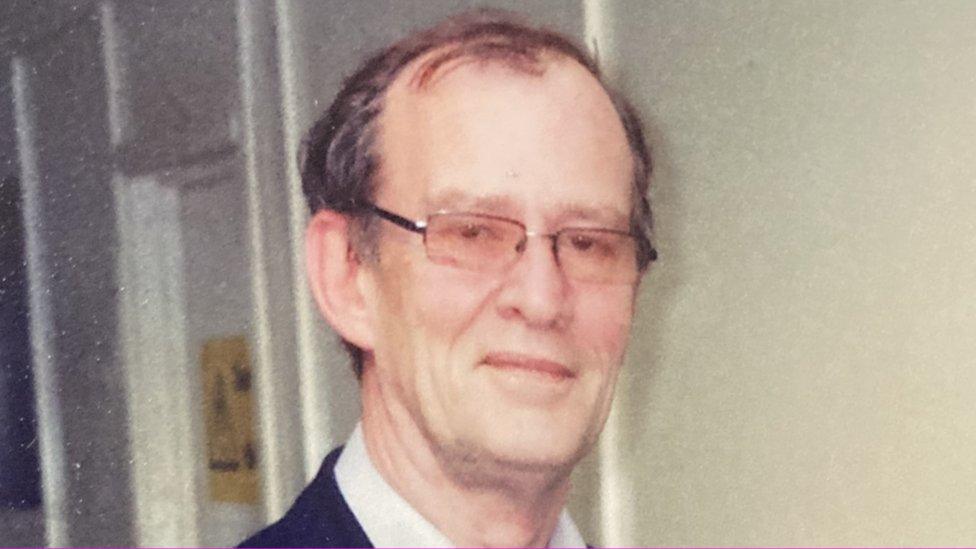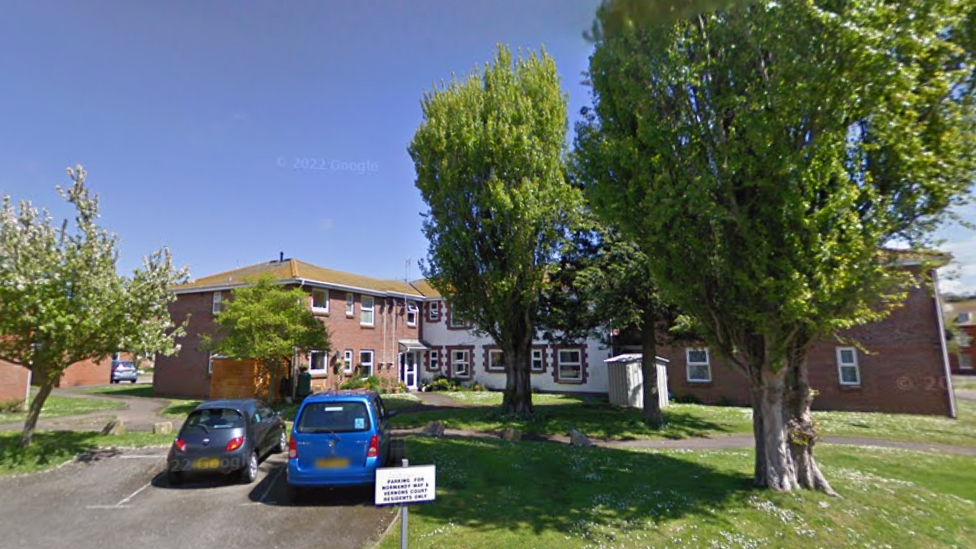Bridport man bled to death after eight-hour ambulance wait
- Published

Kenneth Adams' death was a "callous waste of a life", his brother said
A sheltered housing resident bled to death after an eight-hour ambulance wait that was partly caused by a faulty triage system, a coroner has said.
Kenneth Adams, 70, suffered a scalp injury in a fall at his home in Bridport in October 2021.
Dorset coroner Brendan Allen said the ambulance service dispatch system could not detect the potential severity of the bleed.
South Western Ambulance Service NHS Foundation Trust has apologised.
Mr Adams' brother Paul said the death was a "callous waste of a life".
"The sheltered housing association, the emergency careline and the ambulance service appeared to have done nothing to help Ken for eight hours whilst he slowly bled to death from a relatively minor injury," he said.
"When a neighbour found Ken collapsed on the floor and raised the alarm, three ambulances came within a few minutes, but it was too late.
"Trusted organisations, upon whom people rely in dire need, seemed merely to follow procedures and tick boxes rather than use their own judgement when the situation calls for it."

The ambulance wait "more than minimally contributed to the death", the coroner said
The retired university lecturer fell at his Vernons Court home at about 03:30 BST on 19 October, the coroner said in a Prevention of Future Deaths Report, external.
Mr Adams was classed as a category three emergency, with a target response time of two hours, when he called the ambulance service at 04:00, the coroner added.
Four hours later, the ambulance service was told he was "feeling sick, that he was wobbly when stood up and that his bleeding was continuing", Mr Allen said.
However, the category three response was not changed because Mr Adams was still conscious and the wound did not "spurt or pour blood", the coroner said.

Mr Adams was injured when he fell at his home in Vernons Court
Mr Allen said the ambulance dispatch algorithm did not allow for treatment delays or for the effect of Mr Adams' blood clot medication.
"If Mr Adams had received treatment by 10:25, he would have survived the injury he had sustained," the coroner concluded.
Addressing his report to the ambulance response system's creator, International Academies of Emergency Dispatch (IAED), he said the algorithm should be amended.
Magna Housing, which operates Vernons Court, said in a statement the safety of residents was its top priority.
Appello, which runs the site's careline service, said the coroner had found it complied with its contract in not alerting a housing manager out-of-hours.
In a statement, a spokesperson from the ambulance trust said: "We are sorry that we were unable to provide a timely response to Mr Adams and we would again like to offer our sincere condolences to his family and loved ones."
It said demand on the service was about 25% higher than normal on the day of the death and crews were also facing pressure from hospital handover delays.
IAED has not responded to requests for comment.

Follow BBC South on Facebook, external, Twitter, external, or Instagram, external. Send your story ideas to south.newsonline@bbc.co.uk, external.